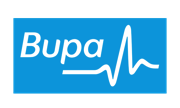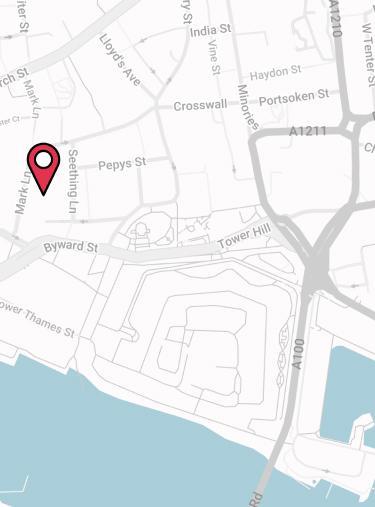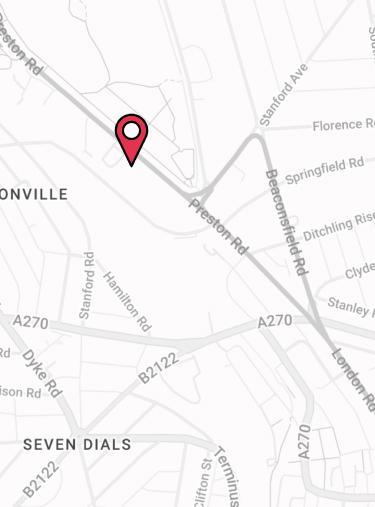Private Health Insurance covers the cost of private medical treatment. It allows you to skip NHS waiting lists and access healthcare exactly when you need it.
However, it’s a complex product. So, how do you compare Private Medical Insurance policies and providers to find the best cover?
We’ve provided this guide on how to compare different products and providers. Read on for all the top things to consider when choosing the best Health Insurance policy for yourself.
Importance Of Comparing Private Health Insurance
Health Insurance comes with lots of extra features, making it a complicated product. There are many policies on the market, meaning you’ll be comparing some very different options.
On top of that, your Health Insurance needs are unique to you. What works for a friend or colleague might not suit your own needs. As such, you need to be sure of what you’re looking for, and consider what each policy offers.
To help you explore what will work best for you, we’ve compiled some extra resources:
- The dropdown menu at the top of the page leads to our independent specialist reviews of each provider. You can compare them based on coverage
- We also have a selection of Private Health Insurance guides. These answer some of the questions our clients most commonly ask
- Or, if you’re ready to compare Health Insurance quotes, check out our online quote tool. It will give you prices from all the best UK insurers, including Aviva, AXA and Bupa 🧐.
Below, we’ll break down the main aspects of Health Insurance, and what to look out for when comparing policies.
Comparing Private Health Insurance Policy Options
There are some important factors to consider when comparing Health Insurance policies. We’ve detailed the key areas you’ll want to look at.
Comparing Health Insurance Providers
Before looking at the policy-specific details, you need to acknowledge that each provider is unique. They all have different approaches to risk, underwriting options, and products on offer. This will all impact the premium you’ll end up paying.
To give you an idea of how costs can vary, we’ve compared policies from two different providers below. The quotes are based on the following criteria:
- A healthy 30-year-old with no pre-existing conditions
- Non-smoker
- A fully comprehensive plan
- 100 policy excess
- A low-risk, office-based occupation.
Different Types Of Private Health Insurance
When deciding which policy to go for, you need to know exactly what medical care will be covered. Medical care is split into the following categories:
- Inpatient treatment
Inpatient treatment refers to all care that requires a hospital bed for at least one night, typically after major surgery
- Day-patient treatment
All care where you need a hospital bed but just for the day, usually after a minor surgical procedure
- Outpatient treatment
Outpatient treatment is any appointments or treatment which don’t need a hospital bed. For example, consultations, scans, physiotherapy, and so on.
Basic, Mid-Range Or Comprehensive Cover
All Private Health Insurance covers inpatient—and almost always day-patient—treatment, as standard. Insurers sometimes refer to this as ‘core cover’. For most insurers, core cover also tends to include full cancer cover. Choosing a policy with just inpatient treatment is a basic, low-cost Health Insurance option.
Outpatient treatment, however, is optional and it is this that will determine whether you have a mid-range or comprehensive Health Insurance policy. This is because you can add different levels to your policy.
As the name suggests, comprehensive cover will cover all eligible inpatient and outpatient treatment in full. However, mid-range, you have up to a set amount for outpatient treatment, e.g. £1,000.
With this in mind when you are looking at comparing policies it’s important to really understand what level of cover you need.
Example
We’ve illustrated the cost of a Health Insurance policy with and without outpatient cover. Each quote is from Aviva and is based on:
- A healthy 30-year-old with no pre-existing conditions
- Non-smoker
- £100 policy excess
- A low-risk, office-based occupation.
Hospital List
An important policy option you need to choose is which hospitals you’ll have access to for treatment. You need to know where you can receive your private medical treatment.
Providers tend to offer a similar choice of hospital lists. The list names will vary from insurer to insurer, but they serve the same purpose. Depending on the provider, you’ll often choose from the following options.
- Guided
This is normally the most cost-effective option. A ‘guided’ hospital list means your insurance provider will match you with a suitable specialist for the treatment you need.
- Local
Some providers offer a localised hospital list, which gives you access to approved clinics within the area you live. This can cost a little more than a guided option.
- National (Excluding Central London)
If you’re comfortable paying more for your cover, you might choose access to all nationwide UK hospitals. However, this list doesn’t tend to include the prestige clinics inside Central London.
- National (Including Central London)
This option might suit those who want to be able to choose from the best care possible regardless of cost. You’ll gain access to all the national UK hospitals including all approved facilities inside Central London.
Example
To show the difference a hospital list can make to the cost, we’ve provided some examples below. Both quotes are from AXA and are based on:
- A healthy 30-year-old with no pre-existing conditions
- Non-smoker
- Full outpatient cover
- £100 policy excess
- A low-risk, office-based occupation.
Exclusions
Another thing to be aware of when comparing Private Health Insurance is that it doesn’t cover all your medical needs. You need to know what conditions won’t be included in your policy.
For example, Health Insurance only treats acute conditions. These are issues that pass with time and treatment. Most providers exclude chronic conditions, as they can only be managed but not altogether cured.
Other common exclusions include:
- Pre-existing conditions
- Normal pregnancy and childbirth treatment
- Cosmetic surgery
- Weight loss treatment
- Kidney dialysis
- Alcohol or substance abuse
- Infertility treatment.
Each insurer will have its own list of exclusions — compare them carefully to ensure you’re getting the best Health Insurance cover.
SPECIALIST TIP 🤓
It’s important to recognise that Private Medical Insurance is designed to work in tandem with the NHS. PMI will cover acute conditions, but there’s no better place than the NHS for chronic conditions and emergencies.
Policy Add-Ons
Comprehensive cover is generally considered the best Health Insurance in the UK. This is because it pays for all eligible inpatient and outpatient treatment in full.
You can also add various optional extras to your policy for an extra premium to enhance your coverage, such as:
- Mental Health support
- Routine dental and optical cover
- Therapies cover (e.g., physiotherapy, osteopathy, or chiropractic treatment).
The best Health Insurance provider for you will depend on your own needs and, of course, your budget. For instance, there’s a notable cost difference between a policy with no add-ons, and one with all the bells and whistles.
Example
We’ve costed a Health Insurance policy with and without the psychiatric, therapies, and dental & optical add-ons. Both quotes are from Aviva and are based on:
- A 30 year old
- Non-smoker
- £100 policy excess
- Core cover (no outpatient treatment).
Free Additional Benefits
Most providers offer free additional benefits with their policies. It’s good to compare what’s on offer so that you can choose the extra features that appeal to you the most.
Common free extras include:
- Digital GP services, offering access to a GP via video or telephone
- Parent accommodation costs if a child the policy covers requires inpatient hospital care
- Helplines staffed by medical professionals for assistance with minor medical complaints
- Stress counselling helplines
- Gym discounts
- A cash benefit for each night you spend in an NHS hospital having treatment for a condition your policy would have covered.
The free additional benefits can vary significantly from insurer to insurer. So when comparing health insurance policies, you’ll want to see which ones offer the best features for you personally.
Claims History
If you’ve had a Private Medical Insurance policy in the past and claimed on it, this will increase the price. Smaller claims can prompt a slight increase in your policy premiums. And as you might expect, high-value claims can increase the cost more substantially.
Underwriting Method
The way your Health Insurance policy is underwritten will also impact the cost. There are two ways your policy might be risk-assessed: Full Medical Underwriting, or Moratorium.
- Full Medical Underwriting
You disclose any health issues you’ve ever had. The provider might exclude certain past or present conditions
- Moratorium
You’re covered for all eligible conditions unless you’ve had symptoms or treatment for them in the past 5 years. Usually, providers will remove these exclusions once you’ve had 2 years clear of symptoms or treatment.
Excess
The excess you opt to pay will also impact the price. Just like with car insurance, you’ll need to pay the policy excess before a claim is paid by the provider. The higher the excess you choose, the cheaper your cover will be.
6 Week Waiting Option
The 6 week NHS wait option is something you can add to some health insurance policies to lower premiums.
If you add it, your policy only pays for private inpatient treatment if the NHS wait for the inpatient procedure you require is longer than 6 weeks. If it’s shorter than 6 weeks, the NHS treats you instead. When comparing Health Insurance providers, it’s always worth checking if this is an option on their policies as it can reduce your premiums.
No Claims Discount
When comparing health insurance providers, it’s a good idea to see if they offer any no claims discounts.
Many insurers offer a tiered system, for instance, after a year without claiming, you get a reduction on your premiums the following year. This isn’t unlimited, though. There is a maximum percentage that a no claims discount will reach.
IMPORTANT NOTICE 🧐
Due to the current length of NHS waiting times, some insurers such as AXA aren’t offering this option. The market changes regularly, so if you’re unsure, give us a call on 02074425880 or email help@drewberry.co.uk to find out your options.
Personal Factors To Consider When Comparing Private Health Insurance
In addition to all the cover options you’ll choose, there are some personal factors that will impact your premium.
Age
As we age, the chances of us becoming ill increase. For this reason, it’s cheaper to take out a Health Insurance policy when you’re younger. The older you are when you take out the policy, the more it will cost.
Similarly, the longer you keep your policy, the more your premiums will increase. Health Insurance premiums are not guaranteed to stay the same throughout the time you have the policy. Providers charge more to account for the increased risk of insuring an older person.
Example
To illustrate the cost of a Health Insurance policy at various ages, we’ve provided some examples below. All quotes are from Freedom and are based on:
- A healthy person, with no pre-existing conditions
- Non-smoker
- Full comprehensive cover
- £100 policy excess
- A low-risk, office-based occupation.
Medical History
This is a key factor when it comes to Private Medical Insurance. Depending on your underwriting method, your provider may assess your full medical history.
Any past or present conditions are likely to become exclusions, meaning they won’t be covered by your policy. Insurers aren’t concerned about minor illnesses such as colds, rather major conditions such as:
- cancer
- heart / circulatory complaints
- mental health problems.
Location
Where you live is another factor that will impact the cost of your Private Health Insurance. As mentioned before, treatment generally costs more in London, where there are also more specialised clinics.
As your location will likely determine your Hospital List, living further from London tends to result in a lower cost policy.
Example
Using the same criteria from the example above, we’ve provided a quote based on someone living in Dorset and another living in Wimbledon.
Smoker Status
When it comes to smoking and the use of nicotine, there are some providers who take a neutral stance. However, due to its associated health risks, many will charge a higher premium to those who have used tobacco or nicotine in the past 12 months.
Example
The example below shows how AXA changes its premiums based on smoker status. The quote was generated based on.
- A healthy person, with no pre-existing conditions
- Full comprehensive cover
- £100 policy excess
- A low-risk, office-based occupation.
Adding Others To Your Policy
Lastly, if you want to add your partner or children to your policy, this will also increase the cost. Statistically, covering more people increases the chances that at least one of them will need treatment. This risk comes with an added cost.
If your budget is an important factor, you’ll want to compare the cost of adding immediate family to your policy.
Example
We’ve illustrated the cost of a Private Medical Insurance policy with and without family members included. All quotes are from Bupa and are based on:
- A healthy 30-year-old with no pre-existing conditions (same basis for partner)
- Non-smoker
- Fully comprehensive cover
- £100 policy excess
- National hospital list (excluding Central London).
What Is The Best Health Insurance?
There is no one size fits all approach when it comes to taking out Health Insurance. As mentioned above, what’s right for you won’t be right for someone else.
You need to do your research and find providers that offer cover which suits your personal circumstances and budget. Getting to grips with all the different options available can be daunting which it is always recommended to speak with an independent protection specialist, like one of the team here at Drewberry.
For more information we have written a detailed guide on the best health insurance policies in the UK.
Is Private Health Insurance Worth It In The UK?
In the UK, we’re lucky enough to have access to free health care on the NHS. However, due to resourcing and budget cuts, waiting times are becoming longer and longer. Private Health Insurance can:
- Ensure that you get quick access to medical treatment when you need it
- Give you access to drugs and treatment not yet available on the NHS
- Provider greater choice when it comes to where and who carries out your treatment.
How Much Does Health Insurance Cost?
As we have shown within this guide, there are many factors that will affect the cost of health insurance premiums.
Some of these are personal, such as age and health, where are others are policy driven. You can’t change things such as your age or medical history, however, you can choose certain policy criteria which can impact cost. This includes things such as:
- Level of cover
- Range of hospitals accessible
- Adding a 6 week waiting option
- Excess.
Comparing The Best UK Health Insurance Providers
As an independent insurance broker, we compare Health Insurance policies from every leading UK insurer. While there are some smaller, more specialised insurers, the core of the market is made up of the six providers detailed in the table below.
Our specialist in-depth review of each of the UK's leading providers
Going Direct VS Speaking With An Adviser
There are two ways you can buy Health Insurance. The first is to go directly to the insurer. The second is to use an independent insurance adviser, such as Drewberry.
It’s important to recognise the difference in these approaches, as one provides much more protection than the other.
Going Direct
Buying direct from an insurer is a non-advised sale. This means that you personally make the decision to buy cover from that particular insurer. As such, there’s no financial protection if the policy turns out to be unsuitable later on.
On top of that, this often involves a lot more work. For example, you need to approach every insurer for Health Insurance quotes. Then, you need to compare them in-depth to find the best deal.
Once you’ve got the premiums, you’ll also need to compare policy documents. These contain a lot of medical and insurance jargon. Without a specialist in your corner, it can be hard to work out which plan offers the best Health Insurance coverage.
Getting Independent Financial Advice
Alternatively, an independent Health Insurance specialist can do all the heavy lifting for you. At Drewberry, we do all the work comparing insurers and policy documents to find you the best cover.
Perhaps most importantly, this is an advised sale. This means our specialists listen carefully to your needs and circumstances in order to give their advice.
It also means that the responsibility for arranging the policy is with the adviser who set it up. So, if the policy isn’t suitable later on, you have financial protection.
Why Specialist Advice Matters
As you can see, there are many things to consider when taking out Private Medical Insurance.
If taking out financial protection was as easy as getting a quick quote and applying online, everyone would do it. But with so many variables, our clients find our specialist advice invaluable.
For instance, some insurers are best placed to cover certain occupations, such as doctors or contractors. Other Private Health Insurance providers are better priced based on location or age. If you’re fit and healthy, there are some insurers that offer discounts based on how often you exercise.
Compare Health Insurance Quotes & Specialist Advice
Every Private Health Insurance provider has their own range of policies. And each policy offers its own variations and benefits. It can therefore become a bit of a minefield if you don’t have the right knowledge to properly compare Health Insurance.
At Drewberry, we have a team of specialists to make sure you get a proper comparison. Our regulated advisors are here to help, and make the best recommendations when it comes to your cover.
Why Speak to Us?
When it comes to protecting your health, you deserve first-class service. Here’s why you should talk to us:
- There’s no fee for our service
- We’re an award-winning independent insurance broker, working with the leading UK insurers
- You’ll speak to a dedicated specialist from start to finish
- 4100 and growing independent client reviews rating us at 4.92 / 5
- Claims support when you need it most
- Authorised and regulated by the Financial Conduct Authority. Find us on the financial services register.
For help and fee-free advice, simply give us a call on 02074425880 or email help@drewberry.co.uk.























![Bupa Health Insurance [Review] Image](/_next/image?url=https%3A%2F%2Fmedia.drewberry.co.uk%2FProject-Penguin-Provider-logosBUPA.png&w=480&q=75&dpl=2113)


